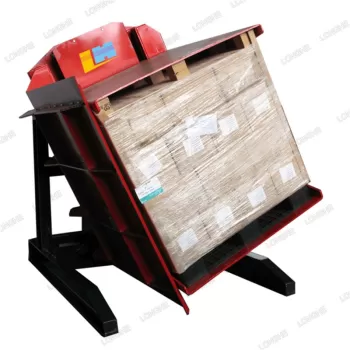Benefits of Using a Pallet Inverter in Warehouses
Warehouses are the beating heart of the logistics and supply chain industry, where the efficient handling of goods is essential. Pallet inverters also known as pallet flippers or pallet rotators, have become indispensable tools in warehouse operations. Let's explore the numerous benefits of using a pallet inverter in your warehouse.
1. Efficient Load Handling
One of the most significant advantages of using a pallet inverter is its ability to efficiently handle loads. It can rotate pallets and their contents 180 degrees or more, making it easy to reorient products for inspection, repackaging, or transfer to a different type of pallet. This automation reduces the time and labor required for manual handling, resulting in increased productivity.
2. Reduced Product Damage
Manual handling of goods can often lead to product damage, especially for fragile or sensitive items. Pallet inverters mitigate this risk by gently and precisely rotating the load. This ensures that products remain intact during the handling process, reducing waste and costs associated with damaged goods.
3. Versatility
Pallet inverters are versatile machines with a wide range of applications. They are used in various industries, including food and beverage, pharmaceuticals, manufacturing, recycling, and retail. This versatility makes them a valuable addition to any warehouse, as they can adapt to different product types and handling needs.
4. Improved Safety
Worker safety is a top priority in any warehouse. Pallet inverters contribute to a safer work environment by minimizing manual handling, which is a common cause of workplace injuries. With the automation provided by pallet inverters, the risk of accidents and injuries is significantly reduced.
5. Cost Savings
By reducing the need for manual labor and minimizing product damage, pallet inverters lead to substantial cost savings for warehouses. Labor costs are reduced, and fewer damaged products mean lower expenses associated with waste and returns. Over time, the return on investment for a pallet inverter becomes evident.
6. Enhanced Product Quality Control
In industries where product quality is of paramount importance, such as the food and pharmaceutical sectors, pallet inverters play a critical role. They allow for thorough quality inspections and repackaging when necessary, ensuring that only top-quality products are distributed to customers.
7. Streamlined Distribution
For retail and distribution centers, pallet inverters streamline the transfer of products from suppliers. This not only reduces handling costs but also minimizes the risk of product damage during transit. A more efficient supply chain benefits both the warehouse and its customers.
8. Environmentally Friendly
Pallet inverters contribute to sustainability efforts by reducing the amount of waste generated due to damaged goods. By minimizing product damage, these machines help reduce the environmental impact associated with product disposal and the use of additional resources to replace damaged items.
9. Compliance with Industry Regulations
In regulated industries like pharmaceuticals, pallet inverters help companies adhere to strict quality control and safety regulations. They provide a standardized and compliant method of handling products, ensuring that businesses meet industry standards and avoid regulatory penalties.
In conclusion, the benefits of using a pallet inverter in your warehouse operations are substantial. They improve efficiency, reduce product damage, enhance safety, and offer a versatile solution for handling various products. Whether you operate in the food industry, pharmaceuticals, manufacturing, or any other sector, incorporating a Pallet Changer can lead to improved warehouse performance and cost savings. It's a wise investment for any business aiming to optimize its logistics and supply chain operations.



